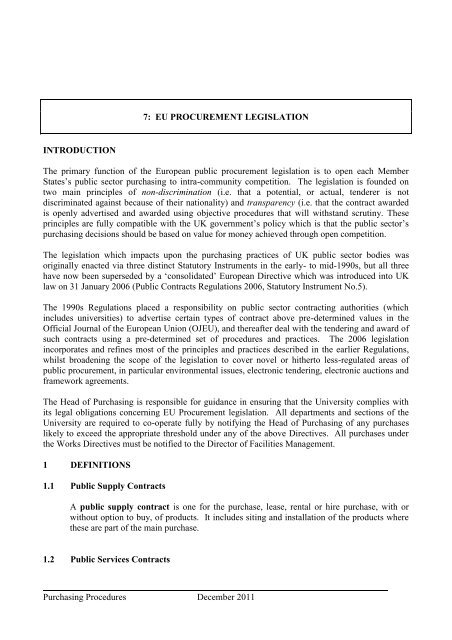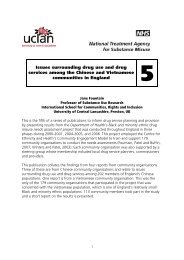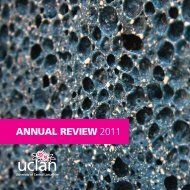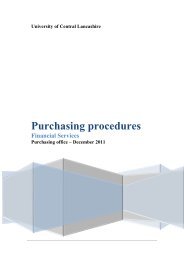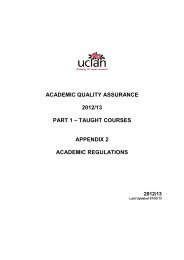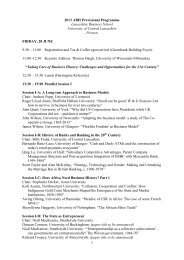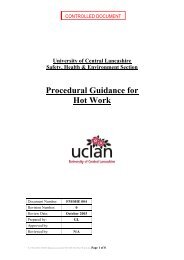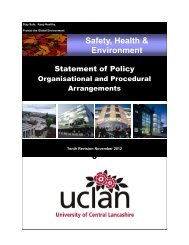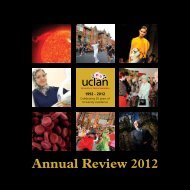PURCHASING PROCEDURES - University of Central Lancashire
PURCHASING PROCEDURES - University of Central Lancashire
PURCHASING PROCEDURES - University of Central Lancashire
You also want an ePaper? Increase the reach of your titles
YUMPU automatically turns print PDFs into web optimized ePapers that Google loves.
7: EU PROCUREMENT LEGISLATION<br />
INTRODUCTION<br />
The primary function <strong>of</strong> the European public procurement legislation is to open each Member<br />
States‟s public sector purchasing to intra-community competition. The legislation is founded on<br />
two main principles <strong>of</strong> non-discrimination (i.e. that a potential, or actual, tenderer is not<br />
discriminated against because <strong>of</strong> their nationality) and transparency (i.e. that the contract awarded<br />
is openly advertised and awarded using objective procedures that will withstand scrutiny. These<br />
principles are fully compatible with the UK government‟s policy which is that the public sector‟s<br />
purchasing decisions should be based on value for money achieved through open competition.<br />
The legislation which impacts upon the purchasing practices <strong>of</strong> UK public sector bodies was<br />
originally enacted via three distinct Statutory Instruments in the early- to mid-1990s, but all three<br />
have now been superseded by a „consolidated‟ European Directive which was introduced into UK<br />
law on 31 January 2006 (Public Contracts Regulations 2006, Statutory Instrument No.5).<br />
The 1990s Regulations placed a responsibility on public sector contracting authorities (which<br />
includes universities) to advertise certain types <strong>of</strong> contract above pre-determined values in the<br />
Official Journal <strong>of</strong> the European Union (OJEU), and thereafter deal with the tendering and award <strong>of</strong><br />
such contracts using a pre-determined set <strong>of</strong> procedures and practices. The 2006 legislation<br />
incorporates and refines most <strong>of</strong> the principles and practices described in the earlier Regulations,<br />
whilst broadening the scope <strong>of</strong> the legislation to cover novel or hitherto less-regulated areas <strong>of</strong><br />
public procurement, in particular environmental issues, electronic tendering, electronic auctions and<br />
framework agreements.<br />
The Head <strong>of</strong> Purchasing is responsible for guidance in ensuring that the <strong>University</strong> complies with<br />
its legal obligations concerning EU Procurement legislation. All departments and sections <strong>of</strong> the<br />
<strong>University</strong> are required to co-operate fully by notifying the Head <strong>of</strong> Purchasing <strong>of</strong> any purchases<br />
likely to exceed the appropriate threshold under any <strong>of</strong> the above Directives. All purchases under<br />
the Works Directives must be notified to the Director <strong>of</strong> Facilities Management.<br />
1 DEFINITIONS<br />
1.1 Public Supply Contracts<br />
A public supply contract is one for the purchase, lease, rental or hire purchase, with or<br />
without option to buy, <strong>of</strong> products. It includes siting and installation <strong>of</strong> the products where<br />
these are part <strong>of</strong> the main purchase.<br />
1.2 Public Services Contracts<br />
Purchasing Procedures December 2011


